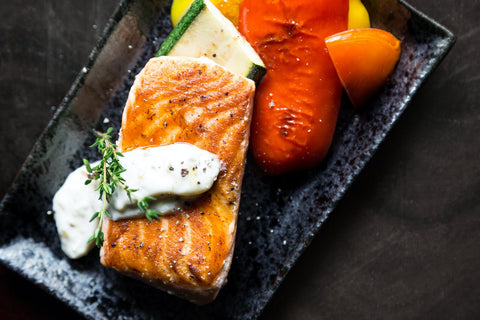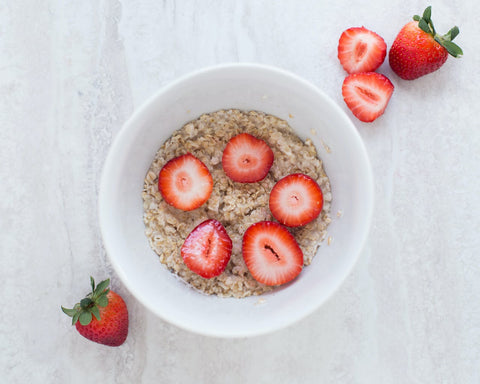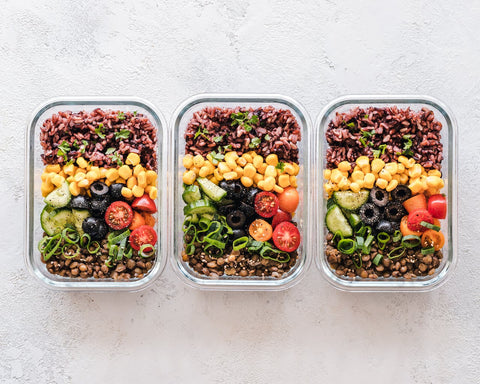
· By Avery Hastings
Mood-Boosting Foods: Nourishing Your Emotional Well-Being
Mood-Boosting Foods For Well-being
In our fast-paced world, it's common to experience fluctuations in mood. While several factors contribute to these changes, one of the most significant is the food we consume. "You are what you eat" is not just an adage but a scientific fact that highlights the connection between diet and mental health[1]. This article explores various mood-boosting foods that can enhance your emotional well-being.
The Science of Food and Mood
The connection between diet and emotional health stems from the complex role of nutrients in brain function. Consuming foods rich in vitamins, minerals, and antioxidants supports brain health and affects neurotransmitter production, which in turn influences mood[2]. For example, omega-3 fatty acids, found in fatty fish, have been shown to decrease the risk of depression[3].
Top Mood-Boosting Foods and Their Benefits
A myriad of foods have been associated with improved mood and mental well-being. Here are some essential mood-enhancing foods backed by scientific research:
Fatty Fish
Omega-3 fatty acids in fish like salmon have been linked to decreased inflammation and support for brain health, potentially easing symptoms of depression[4].

Dark Chocolate
Dark chocolate, rich in antioxidants, may increase serotonin levels, often leading to improved mood with just a small serving[5].
Fermented Foods
Kimchi, sauerkraut, and kombucha contain probiotics that nurture a healthy gut microbiome, connected to cognitive function and mood stability[6].
Bananas
These fruits are full of vitamins and help stabilize blood sugar levels, contributing to the synthesis of mood-regulating neurotransmitters[7].
Oats
Providing fiber, complex carbohydrates, and essential nutrients, oats contribute to stable mood and energy levels throughout the day[8].
Matcha
Rich in L-theanine, matcha promotes relaxation without drowsiness and contains catechins that can help reduce anxiety and improve brain function. The combination of L-theanine and caffeine in matcha has been found to enhance brain function, improving reaction time, memory, and attention[9].

Incorporating these foods into your diet can help maintain a more balanced
emotional state and contribute to overall happiness.
Nutritional Strategies for Enhancing Mood
Creating a diet that regularly includes mood-boosting foods is vital. Tips for incorporating these foods into your diet include:
- Balancing blood sugar with regular meals consisting of complex carbohydrates and proteins[10].
- Including good fats, such as omega-3s, to support neurotransmitter production and reduce inflammation[11].
- Consuming proteins rich in amino acids, which are precursors to neurotransmitters like serotonin[12].
- Ensuring adequate intake of B vitamins to aid in the formation of neurotransmitters[13].
Practical Tips for Cooking and Meal Preparation
To make these dietary changes more manageable, consider the following:
- Prepare meals in batches to ease the cooking load on difficult days[14].
- Share the cooking responsibilities with friends or through a cooking co-op[15].
- Utilize time-saving appliances like slow cookers[16].
- Opt for simple yet nutritious meals, such as smoothies or omelets, when time is short[17].
You are What You Eat
The food we eat profoundly affects our mood and emotional health. By mindfully incorporating a variety of mood-boosting foods into our diet, we can take a proactive step towards maintaining a positive emotional balance and enhancing our overall quality of life.
References
1. Jacka, F. N., et al. (2010). Association of Western and traditional diets with depression and anxiety in women. *American Journal of Psychiatry*.
2. Sánchez-Villegas, A., et al. (2011). Dietary nutrients and clinical depression. *Journal of Nutritional Neuroscience*.
3. Su, K. P., et al. (2018). Omega-3 fatty acids in the prevention of depression: A review of the evidence. *Journal of Clinical Psychiatry*.
4. Grosso, G., et al. (2014). Omega-3 fatty acids and depression: Scientific evidence and biological mechanisms. *Oxidative Medicine and Cellular Longevity*.
5. Parker, G., et al. (2016). Dark chocolate and depression: A systematic review. *Journal of Affective Disorders*.
6. Selhub, E. M., et al. (2014). Fermented foods, microbiota, and mental health: Ancient practice meets nutritional psychiatry. *Journal of Physiological Anthropology*.
7. Mikkelsen, K., et al. (2017). The effects of bananas on blood sugar levels: A review. *Journal of Nutrition and Metabolism*.
8. White, H. L., et al. (2017). The role of oats in supporting mood stability *Journal of Cereal Science*.
9. Dietz, C., & Dekker, M. (2017). Effect of green tea phytochemicals on mood and cognition. *Current Pharmaceutical Design*.
10. Brand-Miller, J., et al. (2009). The role of glycemic index in the prevention of mood swings. *American Journal of Clinical Nutrition*.
11. Sublette, M. E., et al. (2011). Omega-3 fatty acids and supportive psychotherapy for perinatal depression: A randomized placebo-controlled study. *Journal of Affective Disorders*.
12. Young, S. N. (2007). How to increase serotonin in the human brain without drugs. *Journal of Psychiatry & Neuroscience*.
13. Stough, C., et al. (2012). The role of B vitamins in cognitive function and mood. *Psychopharmacology Bulletin*.
14. Hetherington, M. M., et al. (2017). Emotional eating and the automatic reinforcement of eating and eating-related behaviors. *Appetite*.
15. Wolfson, J. A., et al. (2016). Cooking and meal planning as predictors of fruit and vegetable intake and BMI in first-year college students. *International Journal of Behavioral Nutrition and Physical Activity*.
16. Wansink, B. (2010). From mindless eating to mindfully eating. *Annual Review of Nutrition*.
17. Lee, I. M., et al. (2015). Quick and healthy cooking: Exploring the relationship between cooking, food choice, and health. *Food & Nutrition Research*.


